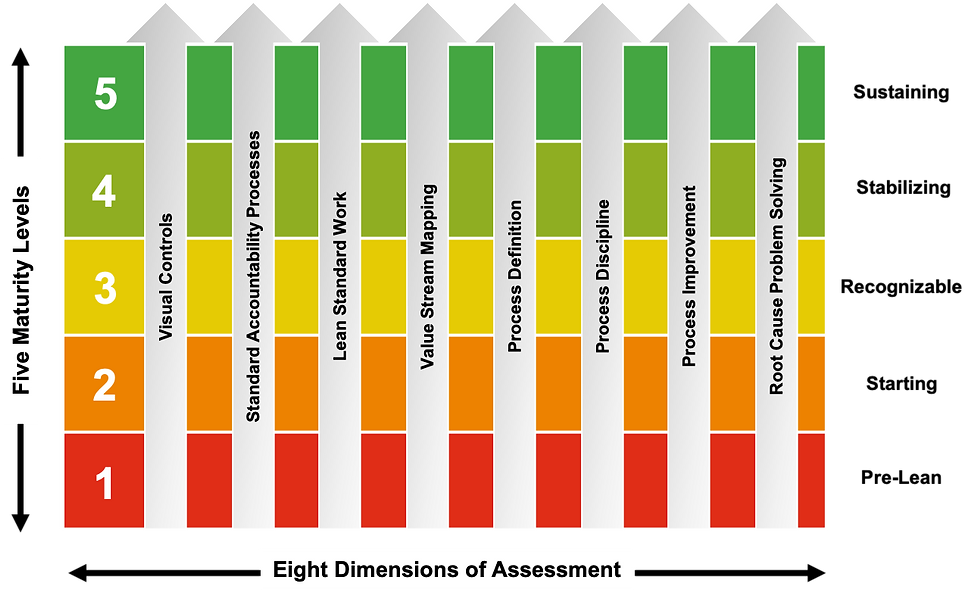Emotional Intelligence for Leaders: How to Strengthen Your Leadership Skills
- Allan Ung

- Apr 14, 2023
- 6 min read
Updated: Mar 20
Allan Ung

"The greatest skill you can possess is the ability to
manage your own emotions."
Brian Tracy
Introduction
Emotional Intelligence (EI) is a term that has gained increasing popularity in recent years. It has become a crucial skill for individuals in both their personal and professional lives. In this blog post, we will explore the concept of EI, its importance, benefits, and obstacles to practicing it. We will also discuss practical tips for developing and improving EI skills.
What is Emotional Intelligence?
Emotional Intelligence is the ability to understand and manage our emotions and the emotions of others. It involves the ability to recognize, understand, and regulate our own emotions, as well as empathize with and respond appropriately to the emotions of others. EI helps individuals to build stronger relationships, navigate social situations, and make better decisions.
Definition of Emotional Intelligence
According to Psychology Today, "Emotional Intelligence refers to the ability to identify and manage one's own emotions, as well as the emotions of others." This definition highlights the importance of both self-awareness and empathy in developing emotional intelligence.
Emotional intelligence (EI) vs Emotional Value (EV)
Emotional intelligence and emotional value are two different concepts.
Emotional intelligence refers to the ability to recognize, understand, and manage one's own emotions and the emotions of others. It involves being aware of one's emotions, being able to regulate them effectively, and being able to empathize with others and understand their emotions. Emotional intelligence is often seen as a set of skills that can be developed through self-awareness, reflection, and practice.
On the other hand, emotional value refers to the significance or importance that we place on our emotions or the emotions of others. It involves recognizing the emotional impact of events, experiences, or interactions and assigning a value to those emotions. Emotional value can vary from person to person and can be influenced by a range of factors, including personal experiences, cultural background, and individual values. In business, customers' emotions are an important aspect of emotional value.
Why is Emotional Intelligence Important in our Personal and Professional Lives?
EI is essential in our personal lives because it helps us to build healthier relationships with others, manage stress and conflict, and make better decisions. It also plays a crucial role in our professional lives, particularly in leadership positions. Leaders with high emotional intelligence are better able to understand and motivate their team members, manage conflicts, and make strategic decisions.
Benefits of Emotional Intelligence
The benefits of developing EI skills are numerous, including:
1. Improved communication and interpersonal skills
2. Better conflict resolution and problem-solving abilities
3. Increased resilience and ability to manage stress
4. Greater empathy and understanding of others
5. Enhanced leadership and teamwork skills
6. Improved decision-making abilities
7. Better overall mental and emotional health
The Emotional Intelligence Framework
The EI framework consists of four key elements: self-awareness, self-regulation, social awareness, and relationship management. These elements are interrelated and build upon one another.

Emotional Intelligence Framework
1. Self-Awareness
Self-awareness is the foundation of emotional intelligence. It involves recognizing and understanding your own emotions, strengths, weaknesses, values, and motivations. Developing self-awareness involves mindfulness, reflection, and self-assessment. Here are some applicable techniques and tools for enhancing self-awareness:
1.1 Mindfulness Meditation: This involves focusing your attention on the present moment and becoming more aware of your thoughts and feelings. It can help you develop a deeper understanding of your emotions and reactions.
1.2 Journaling: Writing down your thoughts and feelings can help you process and understand them better. It can also help you identify patterns in your behavior and emotions.
1.3 Feedback from Others: Seeking feedback from others can provide valuable insights into how you come across to others and how your behavior affects them. It can also help you identify blind spots in your self-awareness.
1.4 Personality Assessments: Assessments such as the Myers-Briggs Type Indicator (MBTI) or the Big Five Personality Traits can help you understand your personality traits and how they affect your behavior and emotions.
2. Self-Regulation
Self-regulation involves managing your own emotions, thoughts, and behaviors effectively. It involves developing self-control, adaptability, and a positive attitude. Developing self-regulation skills involves mindfulness, self-reflection, and practice. Here are some applicable techniques and tools for enhancing self-regulation:
2.1 Mindfulness Meditation: As mentioned earlier, mindfulness can help you become more aware of your thoughts and emotions. This can help you regulate your emotions more effectively.
2.2 Cognitive Restructuring: This involves identifying and challenging negative thoughts and replacing them with more positive and realistic thoughts. This can help you regulate your emotions more effectively.
2.3 Emotional Regulation Techniques: These include techniques such as deep breathing, progressive muscle relaxation, and visualization. These techniques can help you calm down when you're feeling overwhelmed or anxious.
2.4 Positive Self-Talk: This involves replacing negative self-talk with more positive and affirming statements. This can help you develop a more positive attitude and outlook.
3. Social Awareness
Social awareness involves understanding and empathizing with others' emotions and perspectives. It involves developing empathy, social skills, and the ability to read nonverbal cues. Developing social awareness skills involves practice, empathy, and active listening. Here are some applicable techniques and tools for enhancing social awareness:
3.1 Active Listening: This involves listening to others with your full attention and seeking to understand their perspective. This can help you develop empathy and understand others' emotions better.
3.2 Empathy Mapping: This involves putting yourself in others' shoes and trying to understand their thoughts, feelings, and behaviors. This can help you develop a deeper understanding of others' emotions and perspectives.
3.3 Nonverbal Communication: This involves paying attention to nonverbal cues such as body language, tone of voice, and facial expressions. This can help you understand others' emotions better.
3.4 Cultural Awareness: This involves understanding and respecting cultural differences and recognizing how they can affect communication and relationships.
4. Relationship Management
Relationship management involves building and maintaining healthy relationships with others. It involves developing communication skills, conflict resolution skills, and the ability to inspire and motivate others. Developing relationship management skills involves practice, empathy, and leadership. Here are some applicable techniques and tools for enhancing relationship management:
4.1 Effective Communication: This involves expressing yourself clearly and listening actively to others. It also involves using appropriate body language and tone of voice.
4.2 Conflict Resolution Techniques: These include techniques such as active listening, empathy, and problem-solving. These techniques can help you resolve conflicts and build stronger relationships.
4.3 Leadership Skills: This involves inspiring and motivating others, setting goals and expectations, and providing feedback and recognition.
4.4 Team Building Activities: These include activities such as team-building exercises, group projects, and social events. These can help build trust and rapport among team members and improve communication and collaboration.
4.5 Feedback and Recognition: Providing feedback and recognition to others can help build positive relationships and motivate others to perform better.
Obstacles to Practicing Emotional Intelligence
Practicing EI can be challenging, as it requires self-reflection, vulnerability, and a willingness to change. Some common obstacles to practicing EI include:
1. Lack of self-awareness
2. Difficulty regulating emotions
3. Inability to empathize with others
4. Poor communication skills
5. Lack of motivation to change
Practical Tips for Developing and Improving Your Emotional Intelligence
Here are some practical tips for developing and improving your emotional intelligence skills:
1. Practice self-reflection regularly
2. Seek feedback from others and be open to constructive criticism
3. Practice mindfulness and meditation to increase self-awareness and regulate emotions
4. Develop empathy by putting yourself in others' shoes and actively listening to their perspectives
5. Practice effective communication skills, including active listening, assertiveness, and clarity in expressing thoughts and feelings
6. Develop conflict resolution skills by practicing active listening, empathy, and problem-solving techniques
7. Seek out opportunities to lead and practice relationship management skills
Conclusion
In conclusion, Emotional Intelligence (EI) is a crucial aspect of personal and professional development that involves recognizing, understanding, and managing our emotions effectively. The EI framework consists of four key elements: self-awareness, self-regulation, social awareness, and relationship management. Each element is essential in developing emotional intelligence and improving our personal and professional relationships.
Developing self-awareness involves mindfulness, reflection, and self-assessment. Self-regulation requires managing our own emotions, thoughts, and behaviors effectively, which involves mindfulness, self-reflection, and practice. Social awareness requires understanding and empathizing with others' emotions and perspectives, which involves practice, empathy, and active listening. Finally, relationship management requires building and maintaining healthy relationships with others, which involves communication skills, conflict resolution skills, and leadership skills.
While developing emotional intelligence may take time and effort, the benefits are worth it. Individuals who possess high levels of emotional intelligence tend to have better relationships, communicate more effectively, and are more successful in their personal and professional lives.
In summary, developing emotional intelligence can lead to greater self-awareness, better self-regulation, stronger social awareness, and improved relationship management skills. By integrating the techniques and tools mentioned in this blog into your daily life, you can become more emotionally intelligent, improve your relationships, and ultimately achieve greater success.

Article by Allan Ung, Principal Consultant at Operational Excellence Consulting, a distinguished management consultancy based in Singapore. Our firm specializes in maximizing customer value and minimizing waste through the strategic adoption of Design Thinking and Lean management practices. For further details, please visit www.oeconsulting.com.sg
















Comentarios